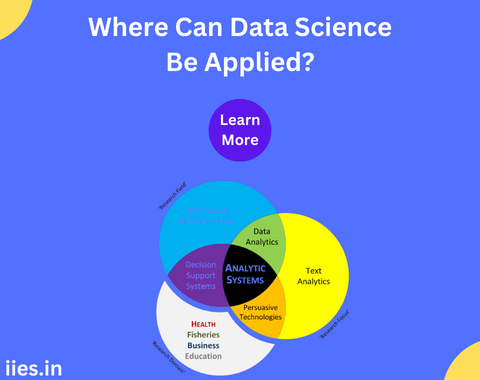Healthcare:
Predictive analytics helps in identifying potential health risks and diseases, allowing for proactive intervention. Electronic health records (EHRs) and data-driven insights aid healthcare professionals in making more informed decisions. Additionally, data science is involved in genomics research, contributing to personalized medicine and advancements in treatment strategies.
Finance:
The financial industry has undergone a seismic shift with the integration of data science. From fraud detection and risk management to algorithmic trading, financial institutions leverage data to enhance decision-making processes. Machine learning models analyze vast amounts of financial data in real-time, identifying anomalies and patterns that might be indicative of fraudulent activities. Credit scoring models, powered by data science, enable more accurate assessments of creditworthiness, benefiting both lenders and borrowers.
Retail:
In the retail sector, data science has transformed the way businesses understand consumer behavior and make strategic decisions. Customer segmentation, recommendation systems, and demand forecasting are key areas where data science is applied. By analyzing purchasing patterns and preferences, retailers can personalize marketing strategies, optimize inventory management, and enhance the overall customer experience. E-commerce giants like Amazon have demonstrated the power of data-driven decision-making in revolutionizing the retail landscape.
Manufacturing:
Data science has found its way into manufacturing processes, giving rise to the concept of Industry 4.0. Predictive maintenance, quality control, and supply chain optimization are areas where data science is making significant contributions. Sensors and IoT devices collect real-time data from machines, enabling proactive maintenance to prevent equipment failures. Machine learning algorithms analyze production data to identify and rectify quality issues, reducing defects and waste. Furthermore, data-driven insights improve supply chain efficiency, minimizing delays and reducing costs.
Education:
In the education sector, data science is reshaping the way students learn and institutions operate. Learning analytics helps educators identify student performance patterns, enabling personalized learning experiences. Predictive modeling assists in early identification of students at risk of academic challenges, allowing for timely interventions. Administrative tasks, such as resource allocation and course planning, are also optimized through data-driven decision-making, enhancing overall efficiency.
Transportation and Logistics:
The transportation and logistics industry benefits significantly from data science applications. Route optimization, predictive maintenance for vehicles, and demand forecasting contribute to cost reduction and operational efficiency. Data-driven insights enable logistics companies to streamline supply chain processes, minimize delays, and enhance customer satisfaction. Additionally, data science plays a crucial role in the development of autonomous vehicles, transforming the future of transportation.
Energy:
In the energy sector, data science is employed for efficient resource management and renewable energy integration. Predictive analytics helps in optimizing energy production and consumption, reducing waste and costs. Smart grids utilize data science to enhance energy distribution and monitor system health. Moreover, data-driven insights contribute to the development of sustainable energy solutions, supporting the global transition towards cleaner and more efficient energy sources.
Marketing and Advertising:
Data science has revolutionized marketing and advertising strategies by providing a deeper understanding of consumer behavior and preferences. Customer segmentation, personalized marketing campaigns, and A/B testing are common applications. Analyzing social media data allows businesses to gauge public sentiment and tailor their messaging accordingly. Programmatic advertising, powered by machine learning algorithms, optimizes ad placements for maximum effectiveness.
Agriculture:
In the agricultural sector, data science is playing a crucial role in optimizing farming practices and ensuring sustainable food production. Precision agriculture leverages data from sensors, satellite imagery, and weather forecasts to make informed decisions about crop management. Machine learning models analyze historical data to predict optimal planting times, irrigation needs, and potential disease outbreaks. This data-driven approach enhances crop yields, minimizes resource wastage, and promotes environmental sustainability in agriculture.
Sports Analytics:
Data science has found its way into the world of sports, transforming the way teams strategize, train, and make decisions. Sports analytics involves the analysis of player performance, game statistics, and even fan engagement. Coaches and team managers use data-driven insights to optimize player performance, design effective training programs, and make informed decisions during matches. Fans also benefit from data science in the form of advanced statistics, predictive modeling for game outcomes, and a more engaging viewing experience.
Telecommunications:
In the telecommunications industry, data science is applied to enhance network performance, optimize resource allocation, and improve customer experiences. Predictive analytics helps identify potential network issues before they affect users, reducing downtime and service interruptions. Customer churn prediction models analyze data to identify customers at risk of leaving, enabling proactive retention strategies. Additionally, data science is instrumental in optimizing network infrastructure and planning for future capacity needs.

